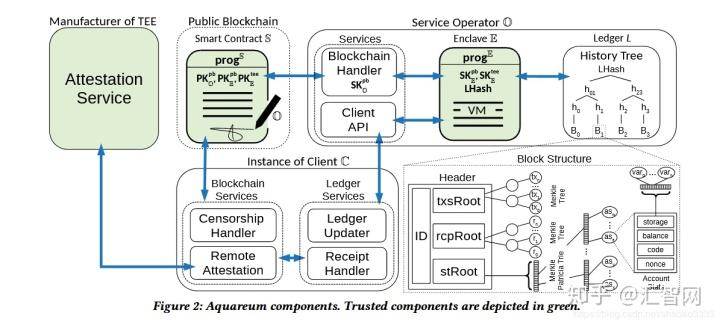Title: Leveraging Blockchain Technology in Healthcare Systems
Abstract:
The integration of blockchain technology in healthcare systems has emerged as a promising avenue for enhancing data security, interoperability, and transparency. This paper explores the potential of blockchain in revolutionizing healthcare through a comprehensive review of existing literature and case studies. It discusses the key challenges facing traditional healthcare systems and demonstrates how blockchain can address these challenges by providing immutable, decentralized, and transparent data management solutions. Additionally, the paper examines various use cases of blockchain in healthcare, including electronic health records (EHRs) management, supply chain integrity, medical research, and patient consent management. Furthermore, it analyzes the impact of blockchain adoption on healthcare stakeholders and presents recommendations for successful implementation strategies.
Introduction:
The healthcare industry faces significant challenges related to data security, interoperability, and transparency. Traditional healthcare systems rely on centralized databases, which are susceptible to data breaches, fraud, and unauthorized access. Moreover, the lack of interoperability between different healthcare providers hampers the seamless exchange of patient information, leading to inefficiencies and fragmented care. In this context, blockchain technology has emerged as a potential solution to address these challenges by providing a secure, decentralized, and transparent platform for data management.
Key Challenges in Healthcare Systems:
1.
Data Security:
Traditional healthcare systems store patient data in centralized databases, making them vulnerable to cyberattacks and data breaches.2.
Interoperability:
Healthcare data is often siloed within different systems, hindering the seamless exchange of information between healthcare providers.3.
Transparency:
Patients lack visibility into how their data is being used and shared by healthcare organizations, leading to concerns regarding privacy and consent.Blockchain Technology in Healthcare:
Blockchain technology offers several features that make it wellsuited for addressing the challenges faced by healthcare systems:
1.
Decentralization:
Blockchain operates on a decentralized network of nodes, eliminating the need for a central authority to validate transactions. This enhances the security and integrity of healthcare data by reducing the risk of a single point of failure.2.
Immutability:
Once data is recorded on the blockchain, it cannot be altered or deleted, ensuring the integrity and auditability of healthcare records.3.
Transparency:
Blockchain provides a transparent and tamperproof ledger of transactions, enabling patients to track the use of their data and ensuring accountability among healthcare providers.4.
Smart Contracts:
Smart contracts are selfexecuting contracts with predefined rules encoded on the blockchain. In healthcare, smart contracts can automate processes such as insurance claims, patient consent management, and supply chain tracking.Use Cases of Blockchain in Healthcare:
1.
Electronic Health Records (EHRs) Management:
Blockchain can facilitate the secure and interoperable exchange of electronic health records between healthcare providers, ensuring continuity of care and reducing administrative burden.2.
Supply Chain Integrity:
Blockchain can be used to track the provenance of pharmaceuticals and medical devices throughout the supply chain, preventing counterfeit products and ensuring patient safety.3.
Medical Research:
Blockchain enables secure and transparent sharing of research data among healthcare institutions, accelerating medical research and drug discovery.4.
Patient Consent Management:
Blockchainbased systems can empower patients to control how their data is accessed and shared by healthcare organizations, ensuring compliance with data privacy regulations such as GDPR and HIPAA.Impact on Healthcare Stakeholders:
1.
Patients:
Blockchain empowers patients to have greater control over their health data, improving trust and transparency in healthcare interactions.2.
Healthcare Providers:
Blockchain streamlines administrative processes, enhances data security, and enables more efficient collaboration between healthcare providers.
3.
Researchers:
Blockchain accelerates medical research by providing access to a transparent and decentralized platform for sharing data and collaborating on research projects.4.
Regulators:
Blockchain can help regulators ensure compliance with data privacy regulations and enhance transparency in healthcare operations.Recommendations for Implementation:
1.
Collaboration:
Collaboration between healthcare organizations, technology providers, and regulators is essential for successful implementation of blockchain in healthcare.2.
Interoperability Standards:
Developing interoperability standards for healthcare data exchange will facilitate seamless integration of blockchain into existing healthcare systems.3.
Data Privacy:
Ensuring compliance with data privacy regulations and implementing robust security measures to protect patient data are paramount.4.
Education and Training:
Providing education and training to healthcare professionals about blockchain technology and its applications is crucial for adoption and implementation.Conclusion:
Blockchain technology holds immense potential for transforming the healthcare industry by addressing key challenges related to data security, interoperability, and transparency. By leveraging blockchain, healthcare systems can enhance patient outcomes, streamline operations, and foster innovation in medical research. However, successful implementation requires collaboration, interoperability standards, and a commitment to data privacy and security. With careful planning and strategic investment, blockchain has the power to revolutionize healthcare and improve the delivery of care to patients worldwide.
References:
(Insert relevant references and citations here)
标签: 区块链基础与应用论文 基于区块链的农业保险优势在于 基于区块链的毕业设计 基于区块链的web开发 区块链技术在医疗领域的应用论文







